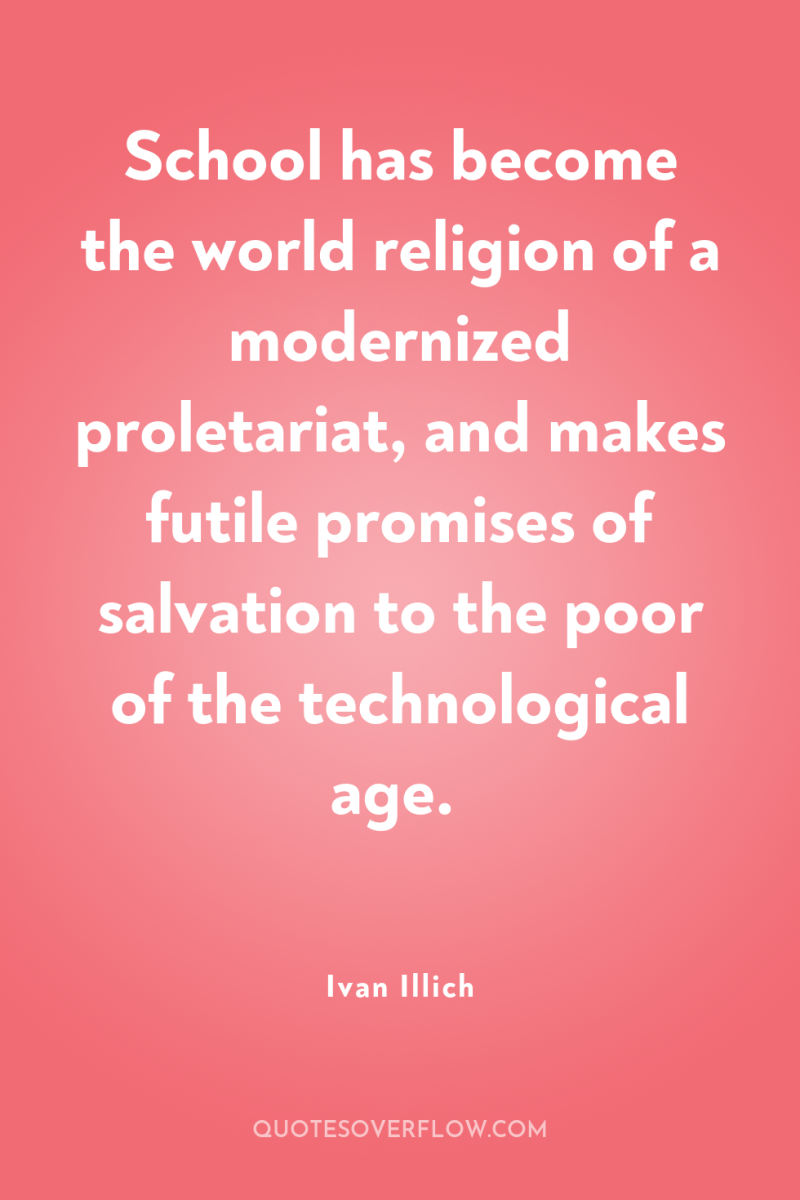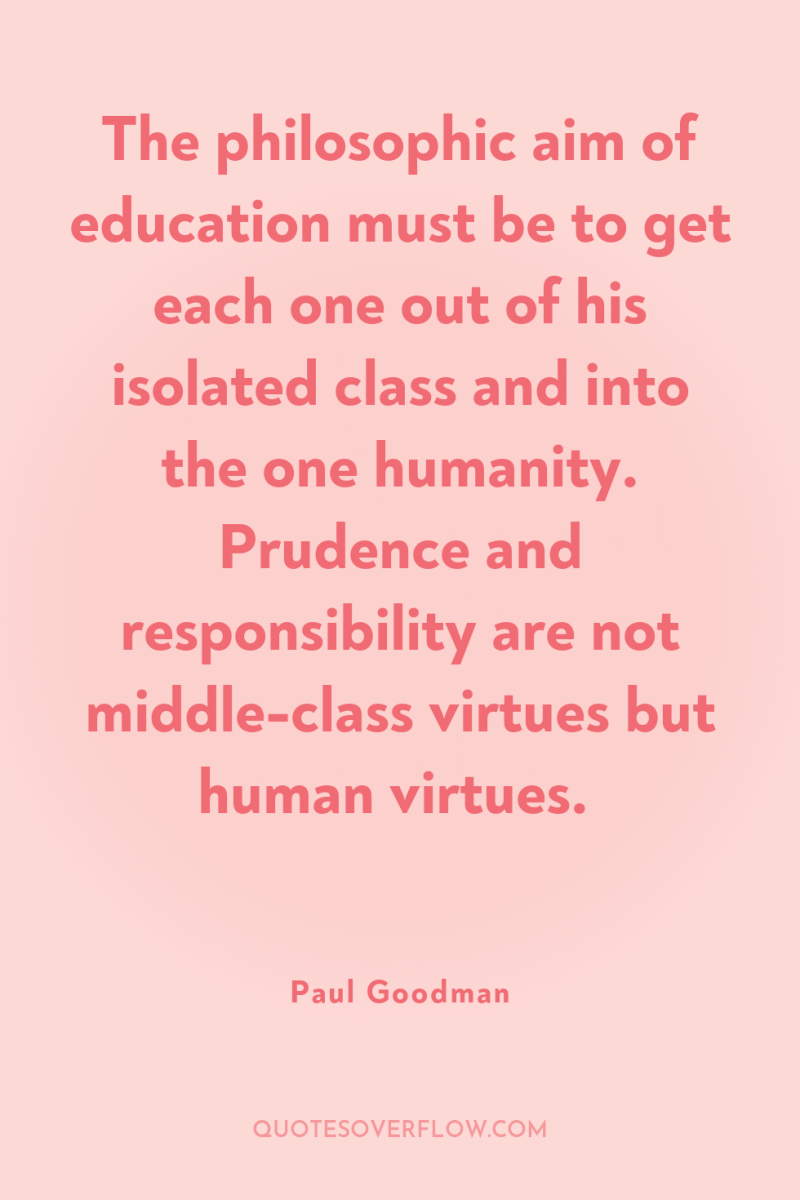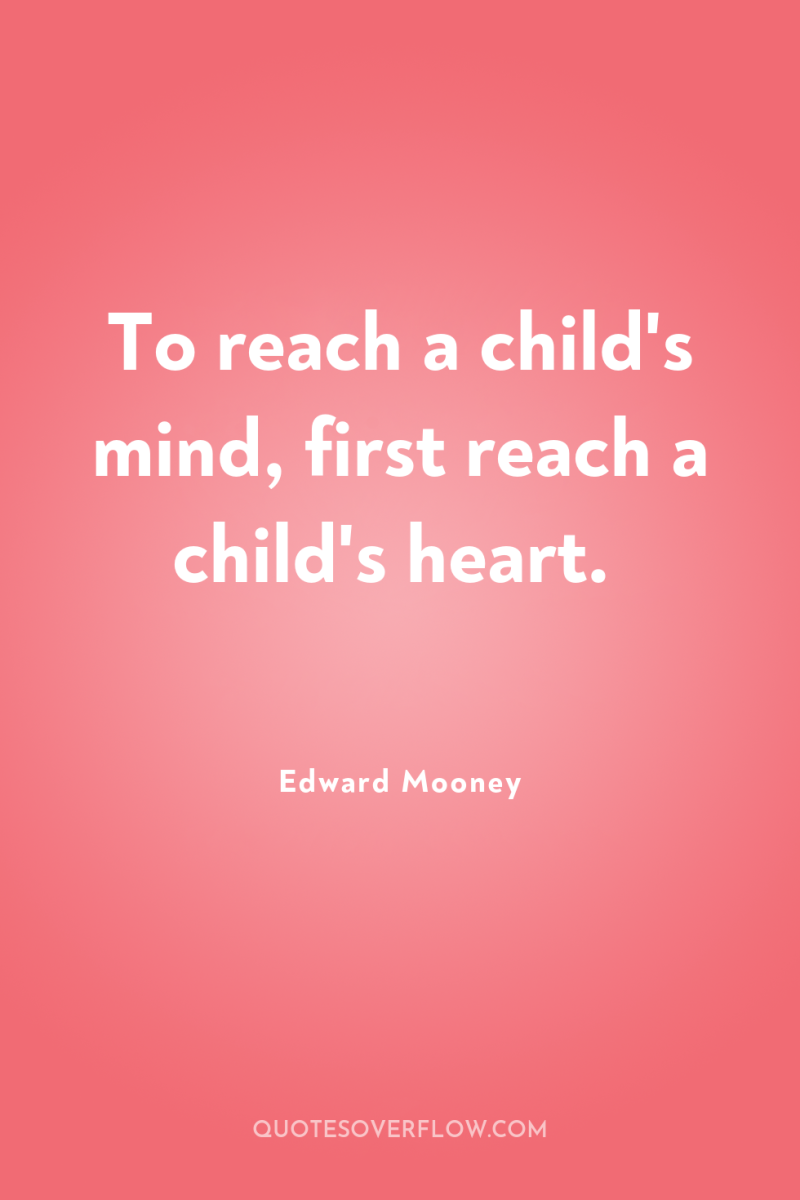1
Pedagogy is always about power, because it cannot be separated from how subjectives are formed, desires mobilized, how some experiences are legitimized and others are not, or how some knowledge is considered acceptable while other forms are excluded from the curriculum.Henry A. Giroux

2
School has become the world religion of a modernized proletariat, and makes futile promises of salvation to the poor of the technological age.Ivan Illich
3
The teacher is of course an artist, but being an artist does not mean that he or she can make the profile, can shape the students. What an educator does in teaching is to make it possible for the students to become themselves.Paulo Freire

4
The philosophic aim of education must be to get each one out of his isolated class and into the one humanity. Prudence and responsibility are not middle-class virtues but human virtues.Paul Goodman
5
Education is a natural community function and occurs inevitably, since the young grow up on the old, towards their activities, and into (or against) their institutions; and the old foster, teach, train, exploit and abuse the young. Even neglect of the young, except physical neglect, has an educational effect -- not the worst possible.Paul Goodman

6
To reach a child's mind, first reach a child's heart.Edward Mooney
7
Because much of the content of education is not cognitively natural, the process of mastering it may not always be easy and pleasant, notwithstanding the mantra that learning is fun. Children may be innately motivated to make friends, acquire status, hone motor skills, and explore the physical world, but they are not necessarily motivated to adapt their cognitive faculties to unnatural tasks like formal mathematics. A family, peer group, and culture that ascribe high status to school achievement may be needed to give a child the motive to persevere toward effortful feats of learning whose rewards are apparent only over the long term.Steven Pinker
8
From the will of a freedom-fighter, Farzad Kamangar:"Is it possible to be a teacher and not show the path to the sea to the little fish of the country? Is it possible to carry the heavy burden of being a teacher and be responsible for spreading the seeds of knowledge and still be silent? Is it possible to see the lumps in the throats of the students and witness their thin and malnourished faces and keep quiet? … I cannot imagine witnessing the pain and poverty of the people of this land and fail to give our hearts to the river and the sea, to the roar and the flood.Samad Behrangi
9
In looking at our our individual classroom pedagogies and our isolated artistic endeavors, we must broaden the frame of analysis to consider historical, contextual and institutional assumptions. This means a constant awareness of how the micro-practices of interpersonal dialogue and embodied ways of knowing each other can provide an impetus fro structural change.Ann Elizabeth Armstrong
10
In all the works on pedagogy that ever I read – and they have been many, big, and heavy – I don't remember that any one has advocated a system of teaching by practical jokes, mostly cruel. That, however, describes the method of our great teacher, Experience.Charles Sanders Peirce
11
Formal learning is like riding a bus: the driver decides where the bus is going; the passengers are along for the ride. Informal learning is like riding a bike: the rider chooses the destination, the speed, and the route.Jay Cross
12
Another Mexican American in another class, approaches Victor after class, carrying his copy of Fahrenheit 451, required reading for the course. The student doesn't understand the reference to a salon. Victor explains that this is just another word for the living room. No understanding in the student's eyes. He tries Spanish: la salon. Still nothing. The student has grown up as a migrant worker. And Victor remembers the white student who had been in his class a quarter ago, who had written about not understanding racism, that there was none where he had grown up, in Wennatchee, that he has played with the children of his father's migrant workers without there being any hostility. His father's workers. Property. Property that doesn't know of living rooms. And Victor thought of what the man from Wennatchee knew, what the ROTC Mexican American knew, what the migrant worker knew. And he thought of getting up the next morning to go with Serena to St. Mary's for cheese and butter. And he knew there was something he was not doing in his composition classrooms.Victor Villanueva
13
Can anyone capable of genuinely appreciating Mozart and Mizoguchi possibly say that he is not, in that respect, immeasurably better off than someone whose cultural horizon is limited to bingo and The Black and White Minstrel Show? The assimilation will not necessarily make him a better person (a common, and obviously fallacious, assumption), but it will open to him possibilities that are closed to his less fortunate fellow humans. If that is what is meant by an "élite, " then I for one shall not willingly sacrifice my membership of it in the name of some perverse and destructive egalitarianism: to put it succinctly, nothing is ever going to come between me and The Magic Flute. It is not, however, an elite from which I would wish anyone to feel excluded: on the contrary, I would like to share my advantages with as many others as possible. That is why I am a teacher. .Robin Paul Wood